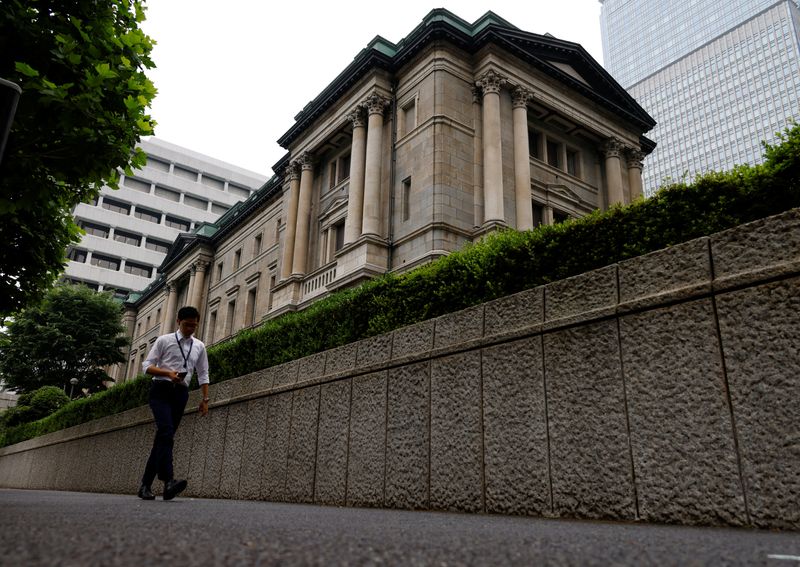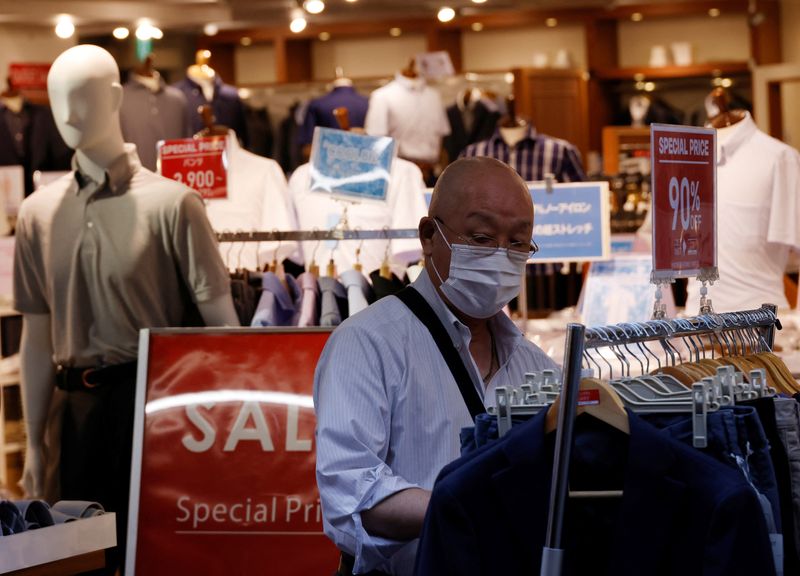By Leika Kihara
TOKYO – The Bank of Japan (BOJ) is expected to reiterate its resolve next week to keep monetary policy ultra-loose and remain a dovish outlier as many other central banks raise interest rates, a commitment that could lead to further falls in the yen.
Central bankers around the world are scrambling to cool stubbornly high inflation, but stronger policy action could increase the risk of a global recession.
The BOJ, however, is in no rush to withdraw its massive stimulus, with Japan’s economy yet to recover to pre-pandemic levels and inflation – at slightly above its 2% target – well below that of other advanced nations.
“If necessary, we’ll take additional monetary easing steps without hesitation with an eye on the impact of the pandemic,” BOJ Governor Haruhiko Kuroda said on Monday.
At its July 20-21 meeting, the BOJ is widely expected to maintain ultra-low interest rates and a pledge to keep borrowing rates at “current or lower” levels.
The decision will come hours before that of the European Central Bank, which looks set to raise rates for the first time since 2011 to combat inflation running at a record 8.6%.
The U.S. Federal Reserve is also seen hiking rates again at its July 26-27 meeting, with investors pricing in the chance of at least a 75 basis point increase.
Prospects of a widening U.S.-Japan interest rate gap pushed the dollar to a fresh 24-year high above 139 yen on Thursday. The dollar stood at 138.84 yen on Friday.
“When you look across the world, the BOJ’s dovish monetary policy stance is an easy target of overseas investors who may build up yen-selling positions,” said Mari Iwashita, chief market economist at Daiwa Securities.
Once welcomed for the boost it gives to exports, a weak yen is a now a source of concern for Japanese policymakers as it inflates already rising cost of food and fuel imports.
In new quarterly forecasts due next week, the BOJ is likely to revise up its inflation forecast for the year ending in March 2023 to above 2% and flag rising inflation expectations.
While the BOJ may also upgrade next year’s inflation forecast from the current 1.1%, it will still project a slowdown from this year as the effect of soaring fuel costs dissipate, say sources familiar with the bank’s thinking.
While sticking to its projection of a moderate recovery, the BOJ will warn of risks such as slowing global growth and a renewed rise in domestic COVID-19 infections, they said.
China’s economy contracted sharply in the second quarter, data showed on Friday, and its recovery is expected to be slow and uneven, further clouding the outlook for Japan’s exports.
With infections on the rise, the BOJ is leaning toward postponing a decision, initially expected at the July meeting, on whether to extend a September deadline for a pandemic-relief programme to support smaller firms’ funding, the sources said.
(Reporting by Leika Kihara; Editing by Kim Coghill)

